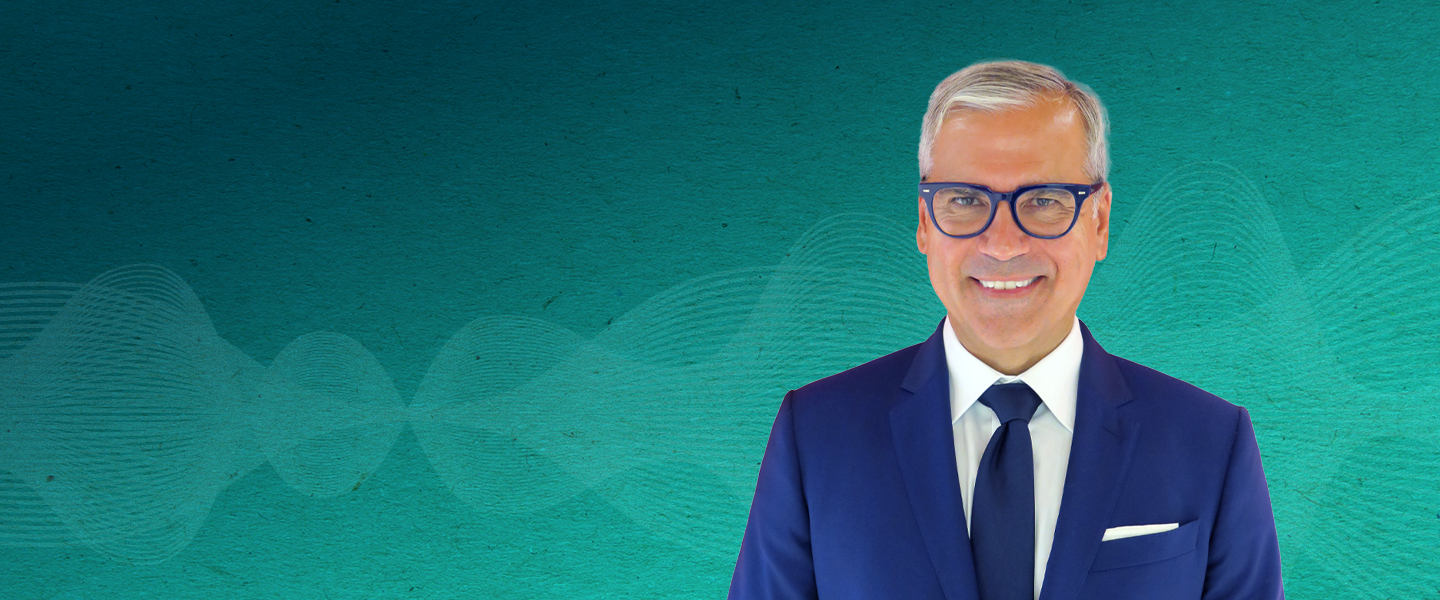"The Emperor’s New Clothes”, COVID-19 and leadership

Do you want to be the responsible leader who sees issues as they are and fixes them, like a bold child, or do you want to be like an overconfident emperor who never learns, and goes back to business as usual?
The COVID-19 crisis makes this question an urgent one for leaders, who are at a crossroads, argues Professor Girod, using Hans Christian Anderson’s tale of “The Emperor’s New Clothes” as a metaphor.
For sure, most of us relate to the feeling of not daring to comment for fear of sounding stupid.
In the first of this two-part series of video vignettes, Stephane J.G. Girod lays bare some of the inconsistencies and vulnerabilities in society that the crisis has revealed. He segments them into social, technological, economic and ecological levels.
Tensions between the US and China, a European lack of collaboration, and ongoing fiscal imbalances and economic inequalities are all areas he touches upon. We live in a polarized world, full of inequalities, deregulation and globalization, and COVID has revealed the inconsistencies.
Professor Girod’s tone is one of mild anger. “Multinationals had the chance to save globalization by placing it on a more sustainable footing. They still haven’t done that,” he asserts. “Unbalanced globalization and deregulation have compromised our national securities and people are dying of it.”
Something isn’t working in society. If the fatality rate is lower than previous pandemics, why has it grounded our society to a halt?
Then there is digital, that we feel we cannot live without. Whilst it has played a positive role in this crisis, the crisis is also a timely reminder of our vulnerability. Technology alone won’t save us; connecting with our environment too might.
We also face serious risks to our freedom, as machine learning grows in sophistication. Social network analysis during the crisis means danger first, opportunities second. The solution? Use data ethically and set limits as citizens.
In video two, Professor Girod presents six ways to contribute to a more balanced post-COVID world, collaborating in turn with Natalia Olynec, IMD’s Head of Sustainability. These include orchestrating local-for-local and regional-for-regional supply chains, showing forbearance and promoting a green recovery.
For employers, the COVID crisis marks an opportunity for companies to embrace a broader sense of purpose and individuals to commit to a conscious mindset change. Professor Girod helps interested parties make sense of concretely how.
We have our hands pretty full fighting the immediate danger that COVID represents. But afterwards, the vulnerabilities and inconsistencies that it is making painstakingly obvious will not have simply disappeared into the ether, just like climate change won’t have gone away, warns Professor Girod. At worst, they could go on to trigger even more harmful crises.
But we still have a chance to change our societies and our fate, and it starts with leaders being shameless and bold. The stuff of children.
Dr. Stéphane J.G. Girod is Professor of Strategy and Organizational Innovation. He directs Reinventing Luxury: Strategic Conversations and co-directs Digital Execution. He is a contributor to Forbes.com and will co-publish a book on agility transformation, “Resetting Management” with Kogan Page in 2021.
Video 1 – What the COVID-19 teaches us about leadership

Video 2 – Responsible business leadership in a post-COVID world

Research Information & Knowledge Hub for additional information on IMD publications
The China Resources Beer (CR Beer) case study is a compelling narrative of the world’s largest beer producer by volume under the leadership of CEO Hou Xiaohai. In 2016 CR Beer embarked on a pivotal transformation journey. This case study offers cr...
Five friends created DIDA in 1983 and turned it into a global provider of IT infrastructure and services. Riding the wave of rapid growth of communication networks and increasingly global business relationships of corporations, DIDA established it...
In June 2024, at the CocoaCrafters Operating Centre, Elena Fever faced a crucial meeting with the board of directors. The discussion surrounded how to integrate Generative AI (GenAI) into the company’s supply chain strategy to enhance forecasting ...

When the dotcom bubble burst in March 2000, this did not stop the world from going digital, but it did poke holes in the concept of trust, especially in the digital world. David Goldenberg, a Belgian entrepreneur with extensive experience in manag...
Officially, brands executives continue to display confidence that big luxury will shrug off the 2024 downturn as a cyclical one. They see it as the product of the combined collapse of real estate prices in China and a return to normalcy after the ...
Research Information & Knowledge Hub for additional information on IMD publications
Research Information & Knowledge Hub for additional information on IMD publications
Research Information & Knowledge Hub for additional information on IMD publications
NTT Corporation, Japan’s information and communication technologies (ICT) leader since 1953, was the first to commercialize internet usage on mobile phones in the 1990s, which resulted in NTT achieving much success in Japan. However, by the end of...
Building on NTT (A), the case starts with NTT’s CEO having narrowed down strategic growth options with the board to prepare NTT for the future. Past international investments in AT&T Wireless and KPN to tap into foreign markets had resulted in bil...
Research Information & Knowledge Hub for additional information on IMD publications
in I by IMD Brain Circuits 15 January 2025
Research Information & Knowledge Hub for additional information on IMD publications
Case reference: IMD-7-2593 ©2024
Research Information & Knowledge Hub for additional information on IMD publications
Research Information & Knowledge Hub for additional information on IMD publications
Case reference: IMD-7-2611 ©2024
Research Information & Knowledge Hub for additional information on IMD publications
Research Information & Knowledge Hub for additional information on IMD publications
Research Information & Knowledge Hub for additional information on IMD publications







